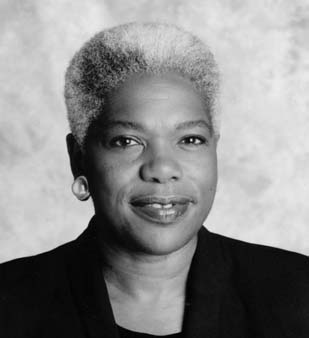
Turkey RPCV Elaine Jones: The invisible woman energized by adversity
Elaine Jones: The invisible woman energized by adversity
By MARC H. MORIAL, National Urban League
At first thought, it seems all wrong describing Elaine R. Jones, head of the storied NAACP Legal Defense and Education Fund, Inc., as an "invisible woman."
Those who know her keen intellect and resourcefulness, determination to get the job done no matter what obstacles present themselves, and vibrant personality would scoff at the idea that she’s someone easy not to notice.
It’s also difficult not to be impressed with her sterling education and professional track record: graduation with honors from Howard University in the mid-1960s; a two-year stint in the Peace Corps in Turkey; the first Black woman to graduate from the law school of the University of Virginia-and then turning down a prestigious Wall Street law firm to join the Legal Defense Fund, where, but for two years working for the federal government, she’s been ever since.
But that "invisible" description sticks-because Elaine R. Jones is the kind of African American still all too often invisible to the larger American society, where glib, negative generalizations about Blacks like her still abound.
And what do I mean by "Blacks like her?"
I mean a Black Baby Boomer who as a youngster in the 1960s took great advantage of the expansion of opportunity across the color line the Civil Rights Movement had forged and who ever since has used her talents to fight for social justice and push open the doors of opportunity wider and wider.
Some of her cohort has waged that fight quietly behind the scenes. Jones chose a front-line civil rights organization whose work from the 1930s onward not only forged the trails that led to the Supreme Court’s landmark Brown decision but also helped jump-start the mass-action civil rights movement of the 1950s and 1960s, and has continued cutting new paths for equality of opportunity to blossom.
It’s not fashionable to say so-it’s never been; but there are millions of African Americans like Elaine Jones.
Saying that, however, is not to deny that it’s worth celebrating the achievements of Elaine Jones herself, as the Legal Defense Fund will do with a formal dinner later this month to mark her retirement from its top post, Director-Counsel.
It’s worth celebrating because the substance of the work she’s done underscores a lesson about American society we must never lose sight of.
Within two years of joining the Legal Defense Fund, Jones was one of the first Black women attorneys to represent death row inmates and the counsel of record in a landmark Supreme Court case, Furman v. Georgia, that abolished the death penalty in 37 states. Jones went on to argue numerous employment discrimination cases, and become a major strategist of LDF’s legislative, judicial and public-policy initiatives.
Eleven years ago-in another first-Jones became the first woman to lead the LDF (which was originally the legal arm of the NAACP before becoming a completely separate entity in 1957), which was organized by two of the century’s greatest lawyers, Charles Hamilton Houston, and Thurgood Marshall.
There she has continued to carry out the organization’s mission: expanding opportunity and protecting the rights of all Americans.
That does mean all. Some of the most important cases Jones refers to from the vast well of her experience involved the LDF representing white plaintiffs, because, she told an audience at the University of Virginia some years ago, "[the important point] is the issue presented by the case, not the race of the person walking through the door with the claim. When we open up opportunity, our job is to open it up for all of us."
So, Elaine Jones represents something old and something new In Black America.
The something new is not merely a career but a life which validates the faith and determination of America’s twentieth-century civil rights pioneers that they could make opportunity a commonplace reality for Black Americans.
The something old is the spirit of civic engagement-of making one’s community and country a better place to live-that Elaine Jones pledged allegiance to from an early age.
She’d be the first one to say that the fight for fairness and opportunity is far from finished; that the gains won in the past must be constantly defended and that new concepts of what freedom means will always need our advocacy.
That’s one reason those of us in the civil rights community are cheered by the fact that her successor is Theodore M. Shaw, the agency’s Associate Director-Counsel and a skilled, experienced civil rights lawyer in his own right.
We know that Ted Shaw, and indeed, the Legal Defense Fund as an institution, is fueled by the quality that marked Elaine Jones admirable and important career. "I guess I am energized by adversity," she’s often said. "There are problems all around us and we have to feel we can make a difference. We can’t feel powerless. We can’t say what difference does one person make. You look at the problem and you see if you have a skill set or the means to address it."
Marc H. Morial, Urban League National President, can be reached at 120 Wall St., New York, N.Y., 10005.
